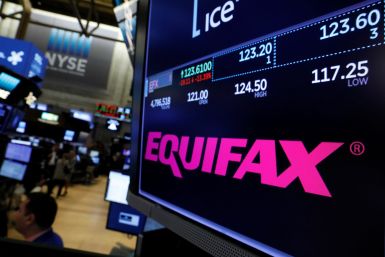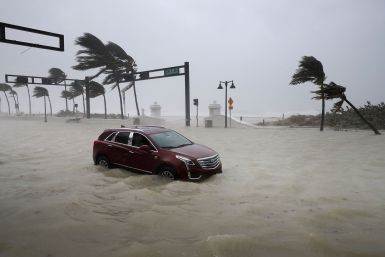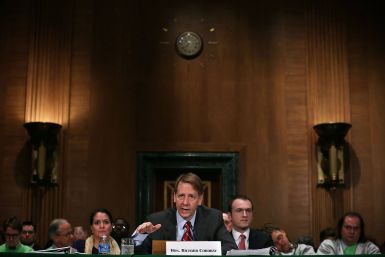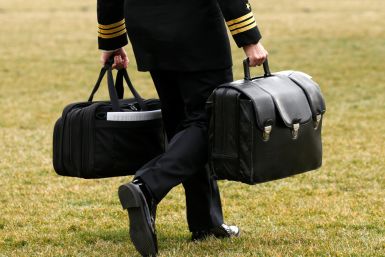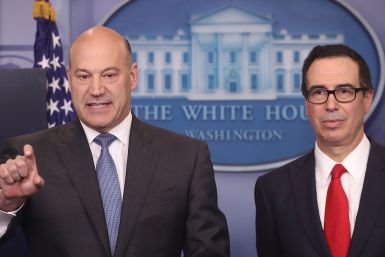So far, 16 Senate Democrats have promised to sponsor the Medicare-for-All bill, but party colleagues who received the most cash from the health insurance industry have refused to back the legislation.
In financial filings before the hack, Equifax expressed worries of a data breach, and the possibility that the company’s "insurance may not be adequate to compensate us" for an associated business loss.
With Democrats rushing to support Bernie Sanders’ Medicare-For-All bill, the party’s health care policy fight may finally be resolved. Here’s a timeline of their long, internal struggle.
Two Texas Democrats are running for Congress in a “safe” Republican district. Will the environmental impact of Hurricane Harvey improve their chance to win?
Using the notorious Panama Papers and a similar leak of information on clients of the British bank HSBC, researchers in the U.S. and Scandinavia found that the wealthier households are, the more likely they are to hide money in nations like Switzerland and the Cayman Islands — making inequality appear less extreme than it is in reality.
Only weeks before Hurricane Irma came ashore, Florida U.S. Rep. Bill Posey reintroduced legislation designed to block federal regulators from forcing companies to better disclose their climate-related risks to shareholders.
The credit reporting company that exposed 143 million people's private data to hackers has lobbied for the right to block consumers from suing.
Seven members of local law enforcement and the fire department who responded to explosions at an Arkema chemical plant in the Houston area are suing the company, alleging that it failed to properly inform them of the dangers of toxic fumes they faced.
Owners of refineries that reported leaking a cancer-causing compound into Houston's air lobbied against the EPA's refinery rule.
Hurricane Irma closes in on the coast of Florida — a state where officials banned the terms “climate change,” “global warming” and “sea-level rise.”
So long, Henry Ford. The new book "End of Loyalty" says the tech industry exemplifies the death of the old social contract between employers and employees.
A former top official from the Chemical Safety Board says the crisis at a Houston plant could have been prevented if the plant owner's lobbying group hadn't fought the board's work.
Arkema's own annual report to investors and risk management plan submitted to the EPA both warned of the exact scenario that has lead to multiple explosions at its Crosby, Texas facility that resulted in noxious smoke billowing over the area.
Nancy Beck — “the scariest Trump appointee you’ve never heard of,” as one environmentalist called her — worked for the chemical industry's lobbying group, which counted Arkema as a member. Now she’s at the EPA, overseeing regulations governing toxic chemicals.
As responders dealt with the crisis at the Arkema chemical plant in Texas, the Washington D.C. Circuit Court denied environmental groups' attempts to keep the EPA from delaying a rule on chemical disclosures and emergency preparedness.
Arkema, the company that owns a Texas chemical plant that spewed “noxious” smoke Thursday, successfully lobbied to delay the enactment of plant safety rules — regulations that would've gone into effect five months ago.
Hurricane Harvey put President Trump’s policy choices and budget cuts in the eye of the storm, says a report from Capital & Main.
"Shock Doctrine" author Naomi Klein says Republicans may try to turn the Houston flood disaster into a rationale for expanding fossil fuel development.
Big Pharma's primary trade association created a "ghost corporation" to spend millions of dollars — from hidden corporate donors —
against an Ohio ballot measure aimed at lowering drug costs.
Sen. Cory Gardner, the beneficiary of fossil fuel cash, criticized Colorado towns for trying to restrict oil and gas development in residential neighborhoods.
The Trump White House let an Obama-era ethics rule lapse. As a result, at least nine administration officials oversee offices that are the target of lobbying efforts by companies they recently worked for.
Chicago's parking meters, Texas' State Highway 130, Virginia's Elizabeth River tunnels — where did they go wrong? Hint: The devil is in the (contractual) details.
After the deadly white nationalist rally in Charlottesville, companies are severing ties with racist and anti-Semitic websites, removing their ads or online infrastructure.
Within four minutes, the president can launch nuclear weapons from a “Denny’s menu of nuclear war” and there are no checks on that authority.
Vice President Mike Pence has been directly lobbied by major health care and drug companies, Wall Street firms, oil and gas interests and industry groups interested in shaping a federal infrastructure privatization initiative.
The White House said National Economic Council Director Gary Cohn would recuse himself from matters directly affecting his old employer, Goldman Sachs. But groups Goldman is a member of have been directly lobbying the NEC.
Axon is using body cameras to build an artificial intelligence system that raises big civil liberties questions.
Dozens of firms, many of them foreign, are hiring lobbyists to get an edge over rivals when it comes to the White House's infrastructure plans. Several of them have prior connections to the officials they're lobbying.
At various levels of government — federal agency leaders, state offices, Congress — individuals have taken steps to protect the pharmaceutical industry at the expense of sick consumers.
While serving as education secretary, DeVos has continued to invest in a company accused of making misleading claims about its ability to treat ADHD and autism.











